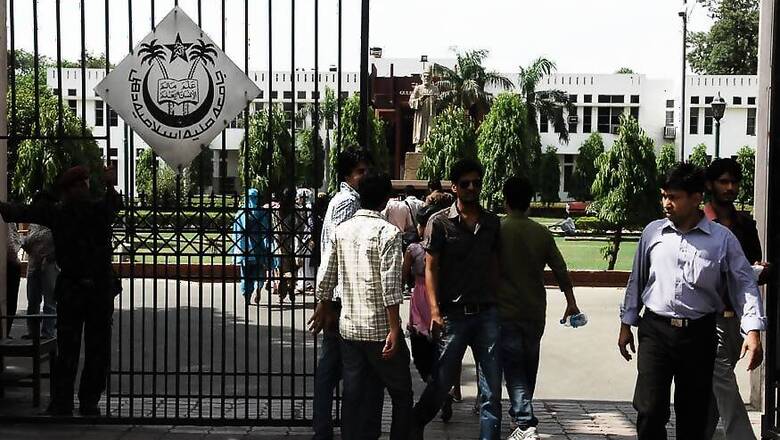
views
New Delhi: The recent proposal by the National Commission for Minorities to set up a ‘Christian University’ on the lines of AMU and BHU has irked the new NCM chief who feels that educational institutions should not be “divided” on religious lines.
Minorities Commission chief Ghayorul Hasan Rizvi was quick to clarify that the report sent reflects the work proposed under former head Naseem Ahmad. “A community is demanding it and it should be looked into. But I am not convinced with this idea,” Rizvi said, adding that emphasis should be on strengthening the overall educational system of the country.
Earlier in January, the Commission had submitted the Annual Report 2016-17 to the government mentioning that “Christians should also be given universities for their communities, fully funded by the Government of India like AMU and Jamia Millia Islamia University”.
The NCM under Ahmad had suggested the establishment of Christian university as a ‘Medium Term Recommendation’, which requires seven years to complete the task. However, the proposal is yet to be tabled in Parliament.
“Today Christians are demanding a university on the lines of Aligarh Muslim University and Jamia Milia Islamia University. Tomorrow Sikhs, Jains, Buddhists, Parsis will demand the same. We cannot look at education in this way. It should not divide,” Rizvi said.
The commission chief said that education is for all and no one should be deprived of it, but looking at it through “the lens of religion” will only complicate things.
“AMU, Jamia and BHU have identities attached to them but it’s for all. Also, these universities were built in different times and circumstances led to them. Today, the situation is different,” the chief said.
The Aligarh Muslim University, formerly called Mohammadan Anglo Oriental College, became a university with Parliament Act 1920, while BHU was established in 1916 by Madan Mohan Malviya, who considered education as the primary means for achieving a “national awakening”.
Rizvi further said that there are six notified minorities, and he has got complaints from them that it is difficult for other minorities and non-minorities to get admissions in an institution based on an identity. “I have told them that we are looking into that as well,” he said.
The Annual Report has comments from the NCM that says, “Special financial assistance should be given to establish a university by Christian community, who have vast experience in education for hundreds of years in both developed and developing countries. Educationists from the Christian community should be given due representation in framing educational policies by the government and also be given place in different expert committees.”
Government of India has taken a decision to set up an ‘institute of eminence’ – the government will be selecting 10 government and 10 private autonomous universities for research and innovation and give them complete freedom from UGC and other government agencies. Also, allow these universities to have their own curriculum and fee structure. They will have complete autonomy in hiring faculty and all other aspects of administration but will be fully funded by the government of India.
The report suggests, “When 10 private universities are selected, at least one should be from Catholic Christian universities.” Right now, the prominent ones are Xavier University Bhubaneswar in Odisha, Don Bosco University in Assam and Christ University in Karnataka.
The NCM chief is also working to spread awareness about the government’s schemes for the minorities.
“The work done by this government for minorities is much better than the projects undertaken under Congress government. We recently had a meeting with the Ministry of Minority Affairs and it was decided to provide the educational institutions with three Ts – teachers, tiffin and toilets. Our madrassas were running without such facilities but now the government is working on it.”
Apart from spreading awareness about government’s work towards the minorities, Rizvi is also building consensus on the Ayodhya issue, which is listed for hearing in the Supreme Court on Thursday. The chief is in talks with eminent Muslim personalities and prominent organizations to convince them “to show kind-heartedness and give Ayodhya to Hindus”.
“If Muslims show large-heartedness for Ayodhya, it will bridge the gap between the two communities. It will be milestone if we bury the differences and move on,” he added.
The commission chief has been interacting with the Muslim organizations for quite some time, and in his interactions with the community members, he has found the reason behind the resistance to the Ayodhya.
“I have figured out the reason for fear in Muslims. They fear that if Ayodhya happens then Kashi and Mathura will also be raised. They say that there is no guarantee that Kashi and Mathura won’t happen. But Ayodhya means nothing to us. We can’t offer ‘namaz’ there and it is just becoming a reason to widen the gap between Hindus and Muslims,” Rizvi said.

















Comments
0 comment